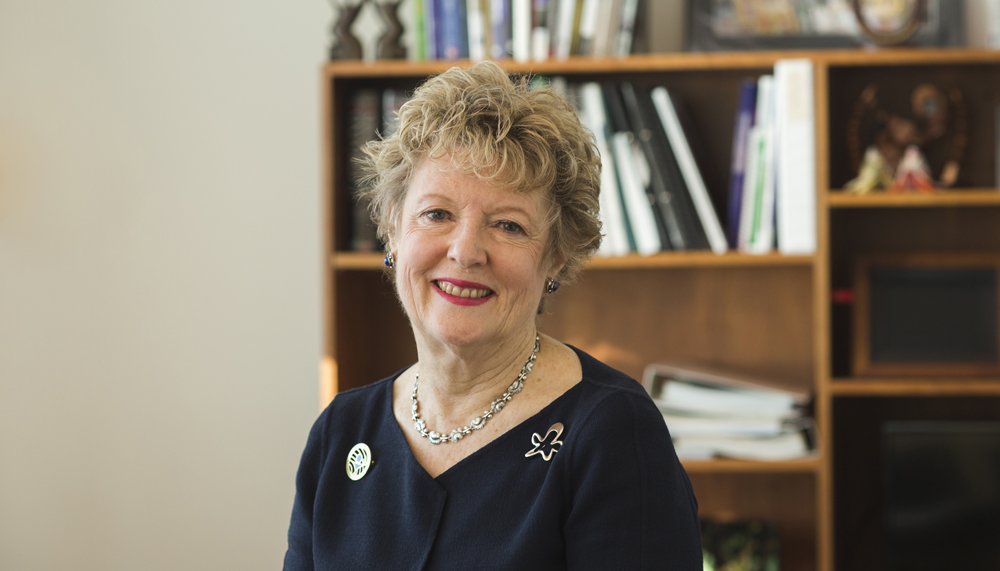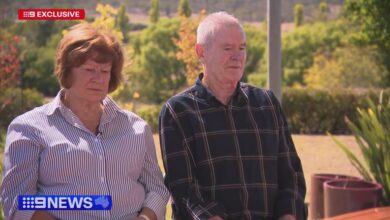Chief amongst chiefs

Five of the top managers in the country discuss their careers and how they advocate for the profession. By Angela Tufvesson
‘Take people with you’
Dr Rosemary Bryant, Commonwealth chief nurse and midwifery officer
Rosemary Bryant is better placed than most to comment on the characteristics of successful nursing managers. During almost 50 years in the industry, Bryant has enjoyed an illustrious career that has included stints in clinical, management and policy roles. She is Australia’s first commonwealth chief nurse and midwifery officer, a federal government advisory role, and has just completed a stint as president of the prestigious International Council of Nurses.
She says strong nursing leaders are “credible, honest, transparent, have a clear goal and are able to communicate that goal to all staff”. She explains that the goal should be shared and developed with staff, and that staff members should be able to understand their individual roles in achieving the goal.
“The important thing as a leader is you have to take people with you,” Bryant says. “That comes from communication and participation and that’s how good leaders are successful.”
Craving a change of direction after consolidating her clinical skills, Bryant chose a career in management over education “because it’s close to the patients”, she says.
Despite her move away from the bedside, making a difference to people’s lives is still very much at the core of Bryant’s professional motivation. “Now I feel I can contribute by advancing the role of nursing and midwifery, which is terribly important, with the goal of creating access to healthcare for the population and access to a high standard of healthcare as delivered by nurses and midwives.
“Access and equity have driven me over the last 20 years or so, and that’s why I’m still here, still working and still trying to contribute to those goals.”
She nominates adaptability – especially to the demands of patients affected by chronic disease – as the biggest challenge for the future. “If I look back to 50 years ago, nursing was different to what it is now,” Bryant says. “Nurses have had to adapt to getting more education, slightly changing their roles and so on.
“Being open to new ideas and undertaking short courses or longer courses to be equipped to meet the changing demands for healthcare on the part of the community is important, as nothing is going to stay the same.”
Help them realise their power
Adjunct professor Debra Thoms, CEO Australian College of Nursing
During a 40-year nursing career spanning three states and territories, several tertiary qualifications – including a master’s of nursing administration – and two prominent chief nurse officer positions, Debra Thoms says she has made career decisions based on four core criteria. “My approach to my career has tended to be looking for things that I find challenging and interesting – they have been in a variety of different roles – and where I can make a contribution and learn something,” she says.
Thoms first took up a management position whilst working as a clinical nurse in a remote area of the Northern Territory. She is a strong advocate of moving interstate and to rural areas to improve career prospects, explaining that the rural experience “exposed me to a whole lot of different things and probably provided me with opportunities that I might have taken longer to get had I stayed in Sydney”.
She says it was a big decision to leave the public health system, the only employer she’d had at that time, to accept the CEO position with the Australian College of Nursing. Fast forward two years and the role continues to satisfy her professional appetite for knowledge. “It’s been great and I’m enjoying it,” Thoms says. “I’ve learned some new things and been able to draw on experiences from the past.”
Watching nurses achieve professional success and gain understanding of the critical role that their profession has in healthcare is the most satisfying element of Thoms’ day-to-day job. As a manager, she says staff often expect her to “have all the answers” but her real value is in helping nurses recognise that they have the skills to solve problems.
“Sometimes, for me, the biggest challenge is for nurses to understand the level of control they can exercise in their own environment,” Thoms says. “Sometimes we think we need to change the whole world in one hit. There are often small things we can do in our environment that make a difference to the patients and ourselves.”
Thoms plans to retire several years down the road, then travel and “do all the things I don’t have time to do now! It’s been a great journey. I have been blessed.”
Passionate advocacy
Adjunct associate professor Kim Ryan, CEO Australian College of Mental Health Nurses
When Kim Ryan first started work as a mental health nurse in 1983, much less attention was devoted to the discipline – and to people affected by mental health difficulties – than there is nowadays. But Ryan’s mum was a mental health nurse and she “always felt it was important to look after people who are marginalised in our community, and I still believe that strongly”.
By making the switch from clinical roles to management, Ryan felt that she could better work towards making sure nurses have the best resources, education and training for providing high-quality services.
“My job is to make sure mental health nursing is as strong as it can be to ensure good services to patients,” she says. “I’ve always seen my job as supporting the [nurses’ ability] to support the patients.”
Ryan was appointed the first salaried CEO of the Australian College of Mental Health Nurses in 2004 – a position she still holds today and lists as her greatest professional accomplishment.
“My biggest achievement is the work I’ve done with the college, taking it from not having any employed staff – I was the first paid employee of the organisation – and consolidating it so people now come to us to ask for advice,” Ryan says. “It’s been a challenge to grow an organisation that doesn’t receive government funding, but we now have a recognised place within our profession.”
Ryan says a good manager is a passionate advocate for nursing who’s not afraid to look outside the box to balance competing priorities and search for innovate solutions to problems.
She says it’s hard to attract nurses to mental health specialties but offers her career as an example of opportunities on hand. “I’ve always found people who have a mental illness or mental health problem to be some of the most resilient I’ve probably ever met,” Ryan says. “I love the area of mental health – I love the notion that people need to be supported to get the most out of life.”
Change from the top
SallyAnne Jones, federal vice-president Australian Nursing & Midwifery Federation
Twenty-year veteran SallyAnne Jones first took on a management role after enjoying a successful stint as a clinical nurse. That’s also when she became active within professional bodies – in particular, the ANMF.
“I did want to influence the profession of nursing as a whole and in order to do that I needed to be in a higher position, so I actively sought to find those kinds of positions,” Jones says.
She now manages a team of more than 120 nurses in a large emergency department and juggles this with her responsibilities at ANMF, where she is now the federal vice-president.
Jones says working for a union offers opportunities to have an input into political debate and help future-proof the nursing workforce in Australia. “My day-to-day role is about chairing meetings and making sure outcomes are delivered, but more broadly it’s about making sure my nursing workforce that works for me are aware of the industrial political issues that impact on their work, to advocate for them at any opportunity that I get, and to position nurses and midwives in a better light,” Jones says.
She is conscious that management work leaves little time for clinical work, but says it is possible for nursing managers to retain clinical currency. “Maintaining clinical currency is a challenge but it’s not an insurmountable thing,” she says. “You could work for an agency or you could work in a different health system if you wanted to get that experience.”
The challenge of constant change
Professor Phillip Della, head of Curtin University of Technology school of nursing and midwifery
“Australia will need to continue educating its nursing workforce in universities and not accept any lower standard of education of registered nurses,” Phillip Della says. “We know from all the evidence that nurses need to be educated at the university bachelor level to ensure safe and quality patient care.”
After more than 30 years in clinical and influential management roles, including in hospital planning, nursing administration, safety and quality, and research administration – and as deputy director of nursing at Royal Perth Hospital and the chief nursing officer in Western Australia – Della decided a move to academia would allow him to have an impact on nurse and midwife education.
“Since taking on the role as head of school, I have been able to influence nursing and midwifery curricula,” he says. “The greatest challenge is staffing, including the ability to recruit highly skilled academic staff who can teach the next generation of nurses and midwives. Academics working in nursing and midwifery at universities must not only be good teachers but [also] be clinically relevant and have a research framework.”
He believes the future of high-quality nursing depends on the industry’s ability to connect research, education and practice, which requires nursing and midwifery academics to constantly review the challenges and opportunities ahead.
Personally, Della draws inspiration from his wife, Maria, and their four sons. “My career has involved a lot of commitment and after-hours work and the support of my family has allowed me to undertake these duties, which have included work with professional organisations, travel for work and weekends away.”
And the secret to his longevity? “I have enjoyed the opportunities that the profession has afforded me, including the ability to move from one job to another,” Della says. “Nursing does afford you great opportunities; however, you must be able to cope with the constant change in organisational structure, patient care demands and the healthcare environment in general.”
Email: [email protected]





